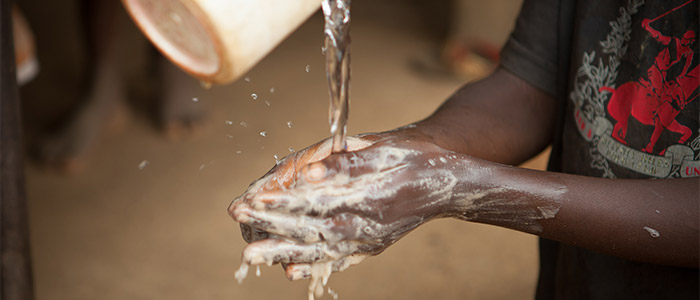
Village Partnerships: Makiteh
Status: Completed - 2010
Location: Bombali District, Sierra Leone
Completed Activities & Impact
Village Development Committee (VDC) formed
WHI works with each village to form and train a Village Development Committee. Community members elect trustworthy people of good reputation to serve on the VDC, including religious leaders, chiefs, head farmers and women. The VDC works with WHI to encourage participation in development activities, steward project resources and hold their community accountable. The committee strategizes about future development planning and discusses solutions to current problems, acting as the primary change agent in the village through collective action.
Goat Multiplication project
In order to maintain a stable year-round income, it is important farmers raise different types of animals that can survive drought periods, are easy to manage and hardy. Not only can goats survive in harsh conditions, but they reproduce faster than other livestock and there is a strong market for goat meat. Goat procurement and production is important to improving food security in rural communities.
Clean Water Well drilled
A new borehole well has brought a consistent source of clean water year-round, a welcome reprieve from the previously existing hand-dug well. Before, the hand-dug well would dry up at the peak of the dry season and force villagers to use water from a contaminated source. This left the community vulnerable to preventable water-borne disease. Now, villagers can drink and wash, year-round, without fear of sickness.
Seed banks established, rice and peanut seeds distributed
Seed banks provide a constant source of seeds for Makiteh. When it is time to plant, farmers receive a portion of seeds from a seed bank, which is managed by the VDC. After harvest, farmers return the amount of seed they loaned from the group with minimal interest. Seed banks mobilize community resources to provide for the common good, strengthening the entire village.
28 latrines constructed
When individuals don't have a toilet to use, human waste gets into the water supply--often the same water supply that people use to fetch water for drinking, bathing, cooking and cleaning. This contaminated water carries deadly diseases. Proper waste facilities are necessary for reducing preventable disease caused by poor hygiene.
Distribution of school supplies and teacher training
5 blackboards, 20 slates and 20 school benches were given to the community school, improving the classroom learning environment for students. In addition, two teachers were trained, empowering them with tools and knowledge to provide quality education for the children of Makiteh.
See CUP II's report from their follow-up visit to Makiteh in February 2013.